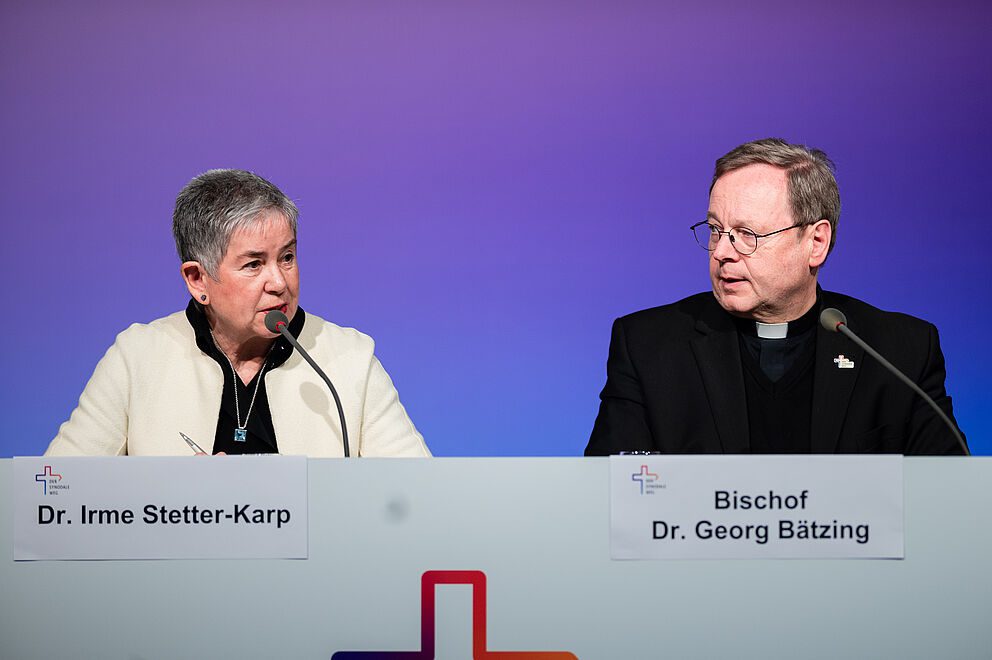
The German Catholic Church this weekend, within an overwhelming margin, decided to begin blessing same-sex couples and accept transgender people’s self-assigned gender as truth. These were only two of a bevy of controversial reforms gaining the support of the Fifth Synodal Assembly in Frankfurt, March 9-11.
Other victories claimed by the German Church’s progressive wing—‘The Synodal Way’—were the re-examination of compulsory celibacy for priests and allowing women and non-ordained men to preach.
On Friday, 92% of those present—230 members in total, made up of archbishops, bishops, and auxiliary bishops, as well as an equal number of lay members—voted in favor of same-sex couples receiving a blessing from the Church. Only nine of 58 bishops opposed the measure, while 11 bishops abstained. If those 11 had gotten off the fence, and joined those nine, the measure would have failed.
A working group is preparing a handout for how such blessing ceremonies should be conducted. As soon as it is ready, each bishop can implement these ceremonies in his diocese.
Sanctioning of relationships would also be extended to the divorced-but-civilly-remarried, as well as unwed couples.
In accepting blessings of same-sex relationships, the German bishops are following their Belgian Catholic colleagues’ example, as well as the Church of England, which agreed on its implementation in February.
During a floor debate preceding the vote, Bishop Stefan Oster of Passau, Bishop Gregor Maria Hanke of Eichstätt, and Bishop Rudolf Voderholzer of Regensburg raised their objections. Bishop Voderholzer warned,
It is foreseeable that after the blessing has been approved, the question will very quickly arise as to whether the blessing is not also discriminatory if the marriage is then refused.
His warning was, however, largely ignored.
Belgian Bishop Johan Bonny of Antwerp, a strong supporter of blessings for same-sex couples, was invited to this year’s assembly. He reported that during his ad limina (an obligatory visit all bishops need to make to Rome every five years) in November 2022, Pope Francis had neither approved nor denied the blessing; he had reportedly said it fell within the pastoral domain of the Flemish bishops, and that all that mattered was that they were all united.
In March 2021, the Vatican published an official clarification that the Catholic Church does not have the power to give liturgical blessings to homosexual unions.
The Synodal Way’s reformers also succeeded in allowing gender diversity to be recognised. At its fifth and final session, a text to that effect was adopted by 170 of 197 votes. Eight voted against and 19 abstained. Among the bishops, 38 voted in favor, 7 against, and 13 abstained, making up the required two-thirds majority of the bishops.
In the text, the German bishops are recommended to allow changes in the baptismal register for transgender and intersex persons and ensure their spiritual guidance.
Numerous delegates applauded the result as they rose from their seats, some waving rainbow flags.
Despite these gains, the now de facto progressivist assembly thought better than going for the main prize: the establishment of synodal councils at the national, diocesan, and parochial levels—a model where governance is shared between bishops and the laity, which the Vatican has said is not in line with Catholic ecclesiology.
It therefore decided to delay voting on this proposal. Over the next three years, a newly established synodal committee will review the issue, while leaders of the Synodal Way attempt to change the minds of Vatican officials and garner support from the wider Church.
Chairman of the German Bishops’ Conference, Bishop Georg Bätzing, reacted with relief to the assembly’s outcome. “I have to say it honestly: A big stone has fallen from my heart,” he said, adding that “The Synodal Way has—despite all the gnashing of teeth—worked,” and was “not a toothless tiger.”
Previously, Bätzing had said on ZDF new’s heute-journal that he saw no danger of a schism within the Church after the reform decisions. “This is a portent that is invoked again and again … We do not speak of it, we do not want it, and we will remain in unity with the great Catholic Church of the world.”
In an interview recorded on location, Sister Katharina Kluitmann, the former president of the German Conference of Superiors of Religious Orders (DOK), said she was “proud of ourselves and the Holy Spirit.”
President of the Central Committee of German Catholics (ZdK), Irme Stetter-Karp, expressed slight disappointment with the reforms thus far, as she would “have liked more.” While it is not possible to “really change the structure” of the Catholic Church in Germany, she said that “overall, the Synodal Way shows a great change, which cannot be appreciated highly enough: It is a great success that all major decision-making issues are now openly on the table.”
At the assembly’s conclusion, a small band of tradition-minded Catholics was seen protesting in front of the building. Chanting “no to heresy and schism,” they demanded that Bishop Bätzing resign. Some carried banners calling for the now seemingly inexorable changing of their Church to be halted.
Launched in 2019 by the Catholic German Bishops’ Conference and the Central Committee of German Catholics, the ‘Synodal Way’ was primarily intended to address the loss of trust the Catholic Church had suffered in the wake of the abuse scandals.
However, it soon transmogrified, becoming a quasi-social justice movement that directed its efforts towards re-imagining Catholic sexual morality, the position of women in the Church and the mandatory celibacy of priests.
It is not yet known how the Pontiff will react to the latest news coming from the Church in Germany.
